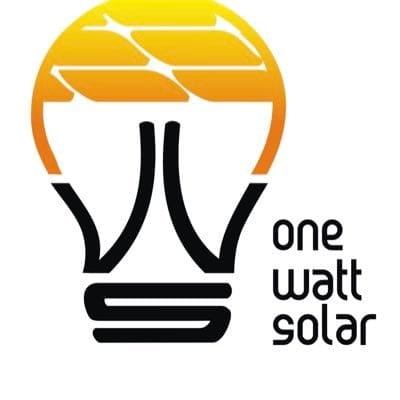
Victor Alagbe, a former financial analyst and blockchain consultant, is leveraging blockchain technology to revolutionize energy access in Nigeria. As the Vice President of Operations and Blockchain Strategy at OneWattSolar, Alagbe leads an initiative aimed at making clean energy more accessible and affordable. By utilizing blockchain, OneWattSolar enables users to pay for solar energy consumed without owning the solar systems outright, fostering a more inclusive energy model.
The Vision Behind OneWattSolar
OneWattSolar is an offshoot of GoSolar Africa, a renewable energy company founded in 2010 by Femi Oye. Despite offering Pay-As-You-Go (PAYG) financing options, GoSolar Africa realized that high upfront costs were deterring many customers from switching to clean energy solutions. To address this, the company developed OneWattSolar, which leverages blockchain technology to finance solar home systems, removing the financial barrier for customers.Alagbe, who joined the team after a successful stint running a blockchain consultancy, saw an opportunity to integrate blockchain into solving real-world challenges. His passion for renewable energy aligned with the company’s mission, leading to the inception of OneWattSolar in 2018.
The Target Audience
OneWattSolar primarily targets individuals and businesses spending at least ₦10,000 (approximately $28) monthly on energy. The company aims to offer a more affordable alternative to traditional power sources, such as generators or grid electricity. Customers incur no upfront costs for hardware; instead, they pay for energy consumed through blockchain-based tokens. Should a customer opt to discontinue the service, the solar system is simply redeployed elsewhere.
Blockchain Integration
Blockchain is central to OneWattSolar’s operations, with applications in fundraising, energy consumption tracking, and payment processing. The company plans to raise funds through token sales, which will finance the purchase and installation of solar systems. These systems, equipped with internet-enabled meters, provide real-time data on energy usage, ensuring transparency and accurate billing.
Customers use tokens to renew their energy credits, and the decentralized nature of blockchain ensures that the ownership of the energy infrastructure is distributed among the community, rather than centralized within the company.
Operational Model
The onboarding process for OneWattSolar includes an energy audit to assess the customer’s needs. Once this is completed, a solar installer deploys the system, which is preloaded with energy credits. Customers can then purchase additional credits using local currency through partner financial platforms. The entire process is tracked via blockchain, ensuring efficiency and accountability.OneWattSolar benefits from the extensive resources of its parent company, GoSolar Africa, including a network of 8,000 solar installers. The startup also collaborates with international consultants and local developers to refine its technology and expand its reach.
Progress and Future Goals
While the full rollout is slated for 2019, OneWattSolar already has a waiting list of over 2,000 customers. The company has placed an order for 500 solar systems for its pilot phase and is actively developing battery technology with extended lifespans. Seed funding from local and international investors has enabled these early efforts.
The long-term goal is ambitious: to install 100,000 solar systems within two years and scale to over 1 million installations across Africa by 2023. The team is optimistic about meeting these targets, driven by growing demand for sustainable energy solutions.
A Bright Future for Clean Energy
By removing financial barriers and incorporating blockchain for transparency and efficiency, OneWattSolar is setting a new standard for renewable energy access in Africa. The startup’s innovative approach not only addresses immediate energy challenges but also lays the foundation for a more sustainable and decentralized energy future.



